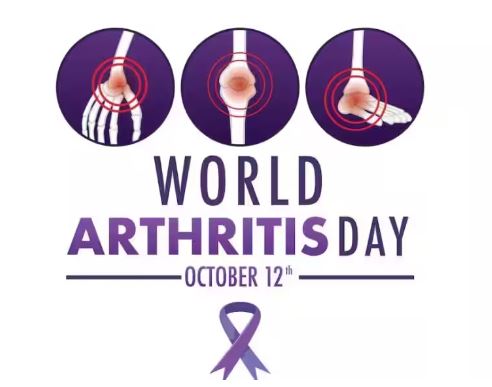Goa is abuzz with excitement as vintage bike and car owners, users, collectors and fans are decking […]

LIVING WITH ARTHRITIS! By Dr.Aneesa Kapadia
MIND & BODY, HEART & SOUL, Oct 14- Oct 20, 2023 October 13, 2023A World Arthrities Day Special
By Dr.Aneesa Kapadia
(Rheumatologist)
OCTOBER 12 is World Arthritis Day. The theme this year is living with arthritis at all stages in life. More than 100 types of arthritis exist, but the most common are osteoarthritis and rheumatoid arthritis. Due to the lack of awareness and support, arthritis and its related condition has crippled much life around the world.
You may have noticed the elders at home are constantly complaining of joint pain. It could be due to the inflammation of joints making it difficult for them to move and stay active. Joint pain can occur as the result of a chronic condition called arthritis, which commonly affects older adults.
Arthritis is an inflammatory condition that affects one or more joints in your body. It causes stiffness and pain in the joints that worsens with age. It is of different types, the two main types being osteoarthritis and rheumatoid arthritis. In both conditions, the protective cushioning of the joints deteriorates, increasing friction and making movements painful.
MORE COMMON IN WOMEN
ARTHRITIES is more common in women than in men. Less common types of arthritis include psoriatic arthritis, ankylosing spondylitis, gout, and systemic lupus erythematosus (SLE) amongst many others.
Here are answers to frequently asked questions.
FAQs About Arthritis
Q: What is the age group usually affected by arthritis?
A: Arthritis can affect patients in any age group. Young children, adults in their prime, as well as the elderly can be affected by arthritis. It is more common in individuals who are above the age of 65 years.
Q: If someone in your family has arthritis, are you also at risk of having it?
A: Certain types of arthritis tend to run in families. This includes conditions such as rheumatoid arthritis, psoriatic arthritis and lupus. Having family members suffering from these conditions increases your risk of developing the disease.
Q: Can diet or certain foods worsen arthritis?
A: Patients who are suffering from gout (a type of arthritis that occurs due to uric acid deposits in the joints) should reduce the intake of red meat, shellfish, alcoholic beverages and other purine-containing foods to prevent the progression of the condition.
On the other hand, including specific food items in your diet will help in relieving the symptoms of arthritis by strengthening your bones, muscles, and joints. This includes oily fish, dairy and green leafy vegetables.
Q: Will my hands and feet get deformed due to arthritis?
A: Untreated arthritis can lead to deformities of your hands, feet, wrists, and ankles. However, with early diagnosis and treatment, this can be prevented. With timely treatment, most patients with arthritis lead functional and productive lives.
Q: Are arthritis medicines harmful?
A: The common medications used for treating arthritis include non-steroidal anti-inflammatory drugs (NSAIDs), steroids, and disease-modifying anti-rheumatic drugs (DMARDs).
When used correctly under expert supervision, most patients do very well with these medications and side effects are rare. Adverse events, when noted, are with a long term use of analgesics and steroids, which can be avoided if the correct medications are instituted at the right time.
Q: Can arthritis be cured?
A: Arthritis, just like any other chronic illness such as diabetes, hypertension, or thyroid disorders cannot be completely cured.
You may have noticed the elders at home constantly complaining of joint pain. It could be due to the inflammation of joints making it difficult for them to move and stay active. Joint pain can occur as the result of a chronic condition called arthritis, which commonly affects older adults.
Arthritis is an inflammatory condition that affects one or more joints in your body. It causes stiffness and pain in the joints that worsens with age. It is of different types, the two main types being osteoarthritis and rheumatoid arthritis. In both conditions, the protective cushioning of the joints deteriorates, increasing friction and making movements painful.
Arthritis is more common in women than in men. Less common types of arthritis include psoriatic arthritis, ankylosing spondylitis, gout, and systemic lupus erythematosus (SLE) amongst many others.
To prevent arthritis, you must:
• Follow healthy lifestyle measures such as doing regular exercise, having a balanced diet, and maintaining healthy body weight.
• Use protective gear while taking part in sports activities, as injuries increase the risk of arthritis.
• Quit smoking as smoking puts stress on the tissues that protect your joints.
(Disclaimer: This article is written by the practitioner for informational and educational purposes only. The content presented on this page should not be considered as a substitute for medical expertise. Please “DO NOT SELF-MEDICATE” and seek professional help regarding any health conditions or concerns. Practo will not be responsible for any act or omission arising from the interpretation of the content present on this page.)
Courtesy: Practo.com















